
Latest News
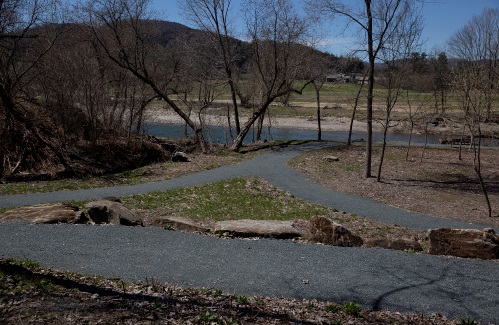
Volunteers work to repair Upper Valley trails damaged by storms
WOODSTOCK — The Ottauquechee River Trail averaged around 500 visitors a week during peak months until last July’s flooding, which left behind debris along the trail, which begins at East End Park off Route 4.The roughly 3-mile trail in downtown...
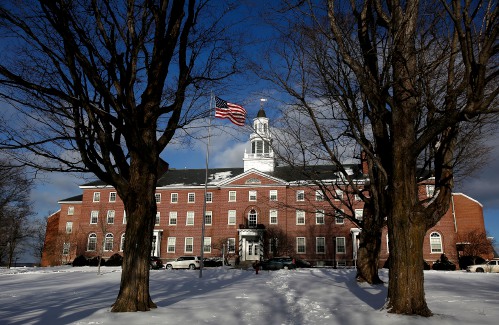
Big drop in tuition and aid is boosting Colby-Sawyer
One year after it made a radical change to how it charges students by slashing both tuition and financial aid, Colby-Sawyer College’s president says the benefits seem to be outweighing the risks, indirectly helped this year by problems with the...
Most Read
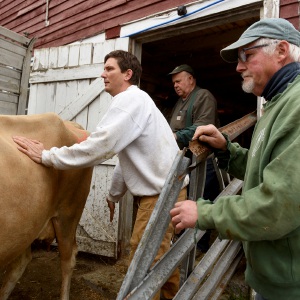 Herd departs Hartford’s last remaining dairy farm
Herd departs Hartford’s last remaining dairy farm
 Kenyon: What makes Dartmouth different?
Kenyon: What makes Dartmouth different?
 At Dartmouth, hundreds protest ongoing war in Gaza and express support for academic freedom
At Dartmouth, hundreds protest ongoing war in Gaza and express support for academic freedom
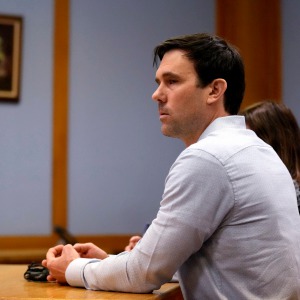 Editorial: Parker parole a reminder of how violence reshapes our lives
Editorial: Parker parole a reminder of how violence reshapes our lives
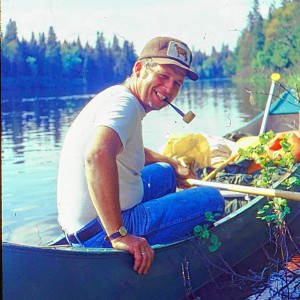 A Life: Richard Fabrizio ‘was not getting rich but was doing something that made him happy’
A Life: Richard Fabrizio ‘was not getting rich but was doing something that made him happy’
Editors Picks
 Some families find freedom with Newport microschool
Some families find freedom with Newport microschool
 A Life: For Kevin Jones ‘everything was geared toward helping other people succeed’
A Life: For Kevin Jones ‘everything was geared toward helping other people succeed’
 Kenyon: Hanover stalls on police records request
Kenyon: Hanover stalls on police records request
 Editorial: Chris Sununu’s moral vacuum
Editorial: Chris Sununu’s moral vacuum
Sports
Local Roundup: Thetford shuts out Windsor in baseball no-hitter
Editor’s note: To have your team’s results included in the Local Roundup, visit https://www.vnews.com/submit-a-score.Baseball Thetford 21, Windsor 0 Highlights: Thetford’s Xander Oshoniyi, Owen Goordrich, Liam Brooks and Dempsey McGovern combined for...
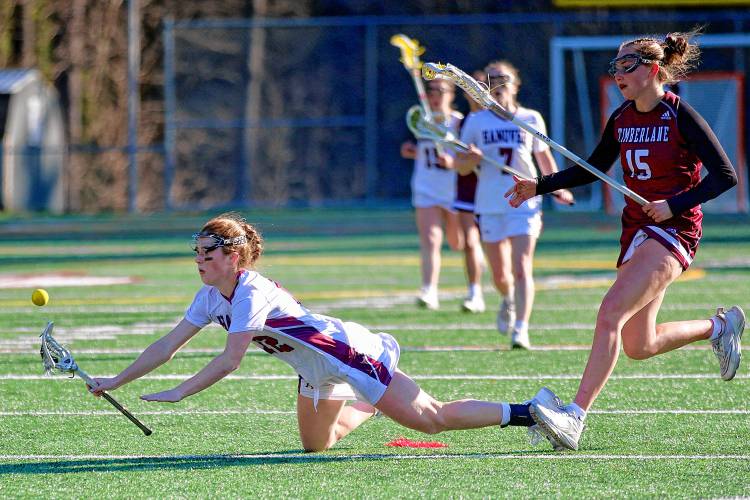 Bears ride strong 2nd half to win in girls lacrosse
Bears ride strong 2nd half to win in girls lacrosse
 Woodstock boys lax defense steps up, holds off Hartford
Woodstock boys lax defense steps up, holds off Hartford
 Pick a sport and Pete DePalo’s has probably officiated it over the past 40-plus years
Pick a sport and Pete DePalo’s has probably officiated it over the past 40-plus years
 Lebanon girls lacrosse prevails over Coe-Brown
Lebanon girls lacrosse prevails over Coe-Brown
Opinion

Editorial: Gambling tarnishes America’s sporting life
Hey, Major League Baseball, does the name Pete Rose ring a bell? Remember him, “Charlie Hustle”? One of the game’s greatest players, whom you banned for life in 1989 because he bet on baseball games?We ask because you have on your hands another...
 By the Way: A white nationalist’s many mistruths
By the Way: A white nationalist’s many mistruths
 Column: The age-old question of what to read
Column: The age-old question of what to read
 Editorial: Transparency wins in NH Supreme Court ruling
Editorial: Transparency wins in NH Supreme Court ruling
 A Yankee Notebook: Among the crowds on vacation out West
A Yankee Notebook: Among the crowds on vacation out West

Photos

Spring cleanup in Lebanon
 Drawn to dragons
Drawn to dragons
 Clear and free in Hartford
Clear and free in Hartford
 Ramping up their foraging
Ramping up their foraging
 Roadside assist in Bethel
Roadside assist in Bethel
Arts & Life
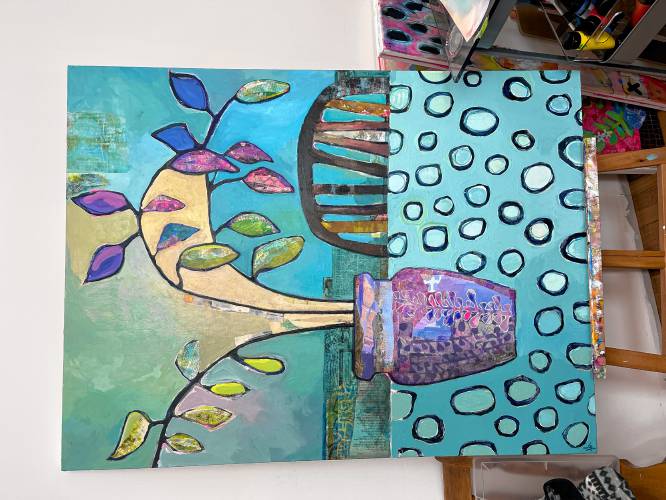
Out & About: Newport art center’s exhibition celebrates homes of all varieties
NEWPORT — When Kate Luppold put out the call for submissions for the Library Arts Center’s exhibition, she expected artists would take its theme of “home” literally.“I expected a lot of houses with white picket fences,” Luppold, the Newport-based...
 JAG Productions announces closure, citing ‘crisis facing the arts’
JAG Productions announces closure, citing ‘crisis facing the arts’
 How a hurricane and a cardinal launched a UVM professor on a new career path
How a hurricane and a cardinal launched a UVM professor on a new career path
 Out & About: Vermont Center for Ecostudies continues Backyard Tick Project
Out & About: Vermont Center for Ecostudies continues Backyard Tick Project
Obituaries
 Gail J. Farrar
Gail J. Farrar
Ascutney, VT - Gail J. Farrar, age 96, passed Tuesday, February 6, 2024. A graveside service will be held in the Cavendish Village Cemetery at 2pm on Saturday, May 4, 2024. Knight Funeral Home in Windsor, VT has been entrusted with ... remainder of obit for Gail J. Farrar
 Cynthia Beam
Cynthia Beam
North Haverill, NH - Cynthia J. Beam of North Haverhill, NH passed away at the age of 68, on April 13, 2024. Cynthia was born on May 20, 1955 in Lawrence MA to John and Marguerite (Hallock) Beam. Names she was known for were CJ, Cyndi, ... remainder of obit for Cynthia Beam
 Philip Porter
Philip Porter
Hanover, NH - Philip Wayland Porter died on Wednesday, April 24th, 2024. He was born July 9, 1928, in Hanover, NH, the son of Wayland R. and Bertha (La Plante) Porter. Philip married Patricia Elizabeth Garrigus on September 5, 1950, in ... remainder of obit for Philip Porter
 Michael S. Thurston
Michael S. Thurston
West Lebanon, NH - Michael S. Thurston, age 60, died Friday, April 26, 2024. A full obituary will be published in an upcoming edition of the Valley News. The Rand-Wilson Funeral Home in Hanover, NH is assisting the family. ... remainder of obit for Michael S. Thurston

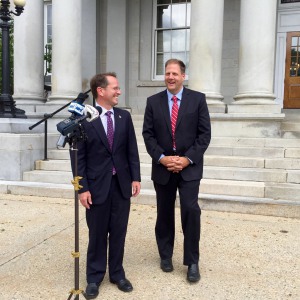 How NH Education Commissioner Frank Edelblut used his office in the culture war
How NH Education Commissioner Frank Edelblut used his office in the culture war
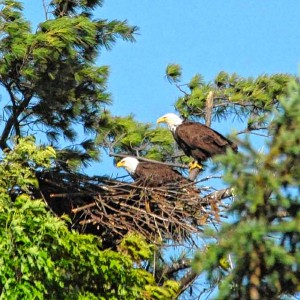 Bald eagles are back, but great blue herons paid the price
Bald eagles are back, but great blue herons paid the price


